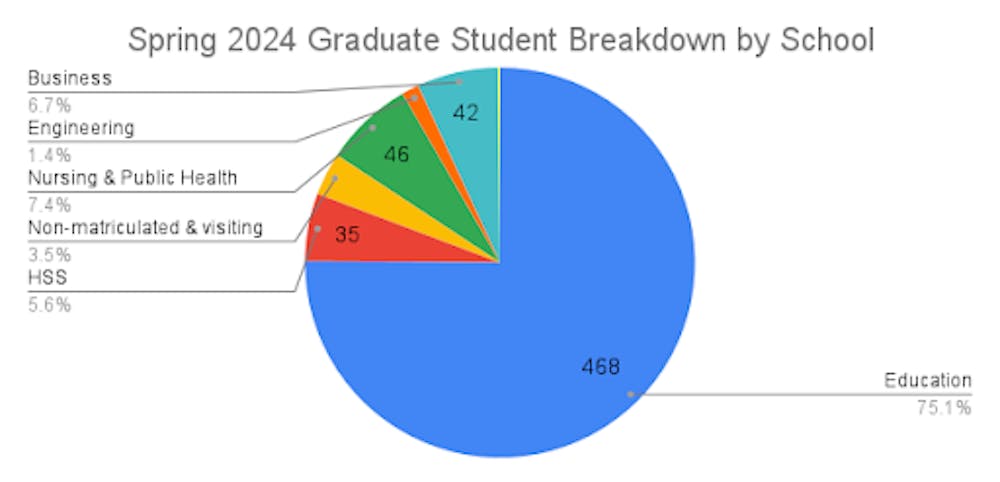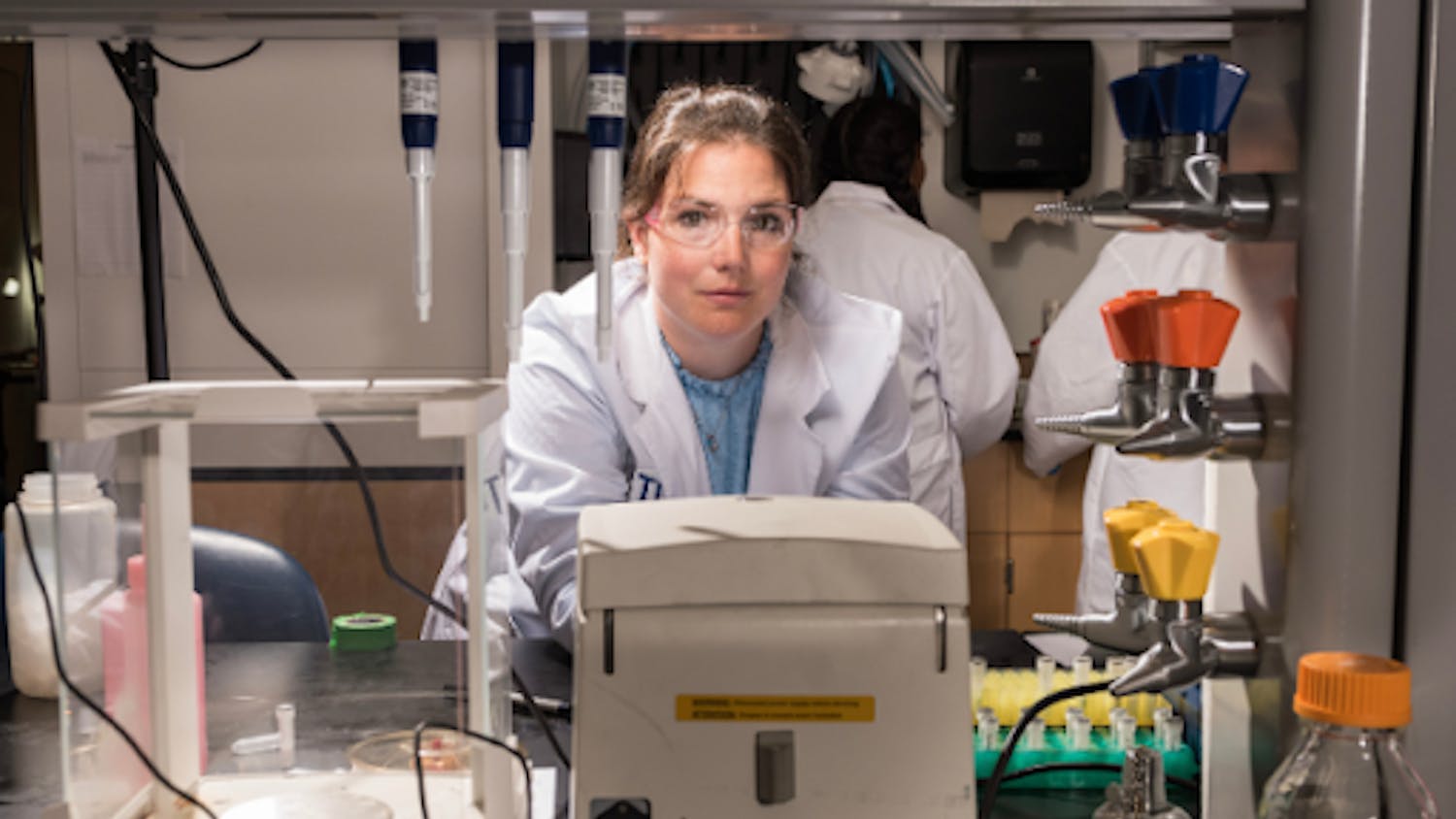By Mike Sherr
Former Editor-in-Chief
The College currently has 35 graduate and certificate programs encompassing fields ranging from school counseling to public policy. As it faces budgetary challenges, the College is looking to have a greater graduate program presence in the region to pull in revenue.
Even after years of growing and creating new programs, however, there has not been significant growth in the number of graduate students. The College currently has 641 graduate and certificate students, less than 1/10th the number of undergraduate students.
“Covid-19 really set back a lot of our graduate programs,” said Linda Mayger, the new interim dean of graduate and continuing studies, in an interview with The Signal. “And so last year, I think was the first year we're really kind of getting our footing again.”
Even before the Covid-19 pandemic, however, graduate enrollment was stagnant. Five academic years ago there were 632 graduate students and in fall 2014 — 10 academic years ago — there were 666 students.
The number of graduate and certificate students at the College has been relatively stable for the past 10 academic years following a decline in years prior. Data was collected from the New Jersey Office of the Secretary of Higher Education (Graph by Mike Sherr).
“There was no investment in graduate programs, so all of the systems at TCNJ really supported undergraduates,” Mayger said. “Marketing supported the undergraduate program. In the last year, [Suzanne McCotter] really started to create systems around graduate programs.”
Prior to being appointed interim provost, McCotter spent a year as dean of graduate and continuing studies. During that time, McCotter and her team set up policies and procedures in order to better support current programs and explore possible future degree offerings.
“I think we’ve made a lot of progress on all of those goals,” McCotter said.
Last semester, Interim President Michael Bernstein announced that the College would be developing a School of Continuing Education and Professional Studies. This new school will combine all of the College’s graduate and continuing studies programs into one place to better manage the growing need for graduate students.
A committee of faculty and staff members headed by Mayger has been formed to develop a business plan and marketing strategy for the new school. They will focus on creating steps to achieve $550,000 in revenue for FY2026 and $4 million in FY2028.
“We have budget issues like most higher ed places, so we're having to take a look at where do we invest, where do we need to streamline,” Mayger said. “Nobody likes to be the one to say, you know, this is the place we have to economize, but those are some of the choices that we are struggling with.”
The committee is also tasked with exploring online graduate degree and certificate options.
“We know that we need to make some major investments into really high quality online blended instruction in order to meet [students’] needs,” McCotter said.
Recent undergraduate students are used to traditional in-person instruction, but adults returning to graduate school have different needs. By providing online instruction, the College can not only better suit the needs of these types of students, but can expand into other markets outside of the northeast.
On top of exploring how they are offered, the College is exploring the types of degrees that are available.
There has been an increase in new degrees in recent years, with seven new degrees being offered since the 2019-2020 academic year. On top of those seven, the College will be offering three new degrees starting next fall: a Master of Arts in professional studies, a Master of Science in accounting and business analytics, and a Master of Science in management and organizations.
“We are always looking for new areas that are right, particularly those that can build on our strong undergraduate programs,” McCotter said.
Jump starting programs takes time, however, and the College might not see the benefits of these new degrees for years. The Master of Business Administration, which launched in 2020, currently only has 42 students.
The School of Education, which houses two-thirds of current graduate and certificate students, has had years of investment. Education programs have existed at the College for decades, allowing the College to focus on providing further education for future teachers and school administrators.
The counselor education program in the School of Education is the largest graduate program at the College. Two of its degrees have the most students of any graduate or certificate program. The Master of Arts in counselor education has been around since 1991, allowing it to have a strong reputation throughout the region to attract prospective students.
New degrees and certificates would not have the same reputation as existing programs, forcing the College to make long-term strategic decisions about new degrees. They will have to consider what future job markets will look like and the types of education that will be needed.
“We know what our strengths are,” McCotter said. “So we need to go out there with our strengths forward and figure out how we can meet some of the needs and also expand our audiences. We're not trying to just do what everybody else is doing. We're trying to think of where are the needs and then how can we go to those needs instead of just waiting for the needs to come to us.”
On top of new degrees, the College is exploring programs that give professionals credentials related to their jobs. These programs would not award students degrees or certificates, but would simply allow them to say they learned about a topic.
With the College looking to provide greater focus to post-bachelors programs, it is unclear how the make-up of the institution will look in the coming years.
“We know what we're proud of,” Mayger said. “We know what we're good at and now is not the time for us to figure out something else that will take us 15 years to get good at. Now is the time for us to just double down on what we're good at and do more of it well.”







